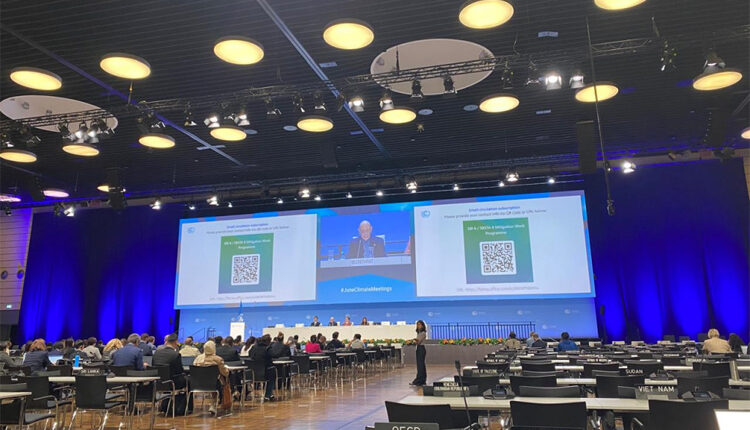Bonn climate meet plagued with distractions & doublespeak, road to COP29 appears bumpy
The road to 29th Conference of Parties (COP29) to the United Nations Framework Convention on Climate Change in Baku appears bumpy after the mid-year climate talks in Bonn, Germany concluded June 13, 2024 with little progress, according to researchers from the Centre for Science and Environment (CSE) who attended the negotiations.
The Bonn talks took place while searing temperatures scorched northern India and Sudan and floods raged in southern Germany, omens of intensifying climate impacts.
Avantika Goswami, CSE’s programme manager for climate change, emphasised the disappointing outcome despite the urgency highlighted by extreme weather events around the world. “For countries that had gathered for the two-weeks of negotiations in Bonn, this did not seem to matter, as distractions and double-speak ruled the talks,” she said in a statement pointing out a lack of focus on critical issues amidst the backdrop of climate disasters.
Headline issue of finance sees divergence
A major sticking point was the New Collective Quantified Goal (NCQG) on climate finance, where developed and developing countries remained far apart. Developing nations called for increased grant-based and concessional financing, while developed countries proposed including certain developing countries in the contributor base, arguing it reflects “new economic realities.”
CSE’s Sehr Raheja emphasised that the Paris Agreement assigns the responsibility of providing finance to developed countries.
“Articles 9.1 and 9.3 of the Paris Agreement speak of developed country obligations of providing finance; the climate finance negotiations are not meant to push more responsibility onto developing countries, but rather, to honour obligations of developed countries to provide means of implementing climate action that is long overdue, in line with needs,” the programme officer for climate change, added.
Developing countries proposed a quantum of $1.1-$1.3 trillion annually, deemed an underestimate by CSE, while developed nations remained silent on the amount.
Headline issue of finance sees divergence
A major sticking point was the New Collective Quantified Goal (NCQG) on climate finance, where developed and developing countries remained far apart. Developing nations called for increased grant-based and concessional financing, while developed countries proposed including certain developing countries in the contributor base, arguing it reflects “new economic realities.”
CSE’s Sehr Raheja emphasised that the Paris Agreement assigns the responsibility of providing finance to developed countries.
“Articles 9.1 and 9.3 of the Paris Agreement speak of developed country obligations of providing finance; the climate finance negotiations are not meant to push more responsibility onto developing countries, but rather, to honour obligations of developed countries to provide means of implementing climate action that is long overdue, in line with needs,” the programme officer for climate change, added.
Developing countries proposed a quantum of $1.1-$1.3 trillion annually, deemed an underestimate by CSE, while developed nations remained silent on the amount.
A lack of coordination will continue to derail this programme, until a better mechanism is devised, Goswami pointed out.
Discussions under Article 6 (market mechanisms) yielded some clarity on certain positions but lacked consensus. A joint workshop before COP29 will address remaining disagreements.
Trishant Dev, programme officer, climate change at CSE, cautioned, “There are conflicting views on some substantial matters, and attempts to have an agreement that satisfies all Parties may dilute resulting guidelines on these matters.”
The Bonn talks highlight the significant challenges that remain before COP29. Bridging the gap between developed and developing countries and fostering trust will be crucial for achieving meaningful progress on climate action.


Comments are closed.